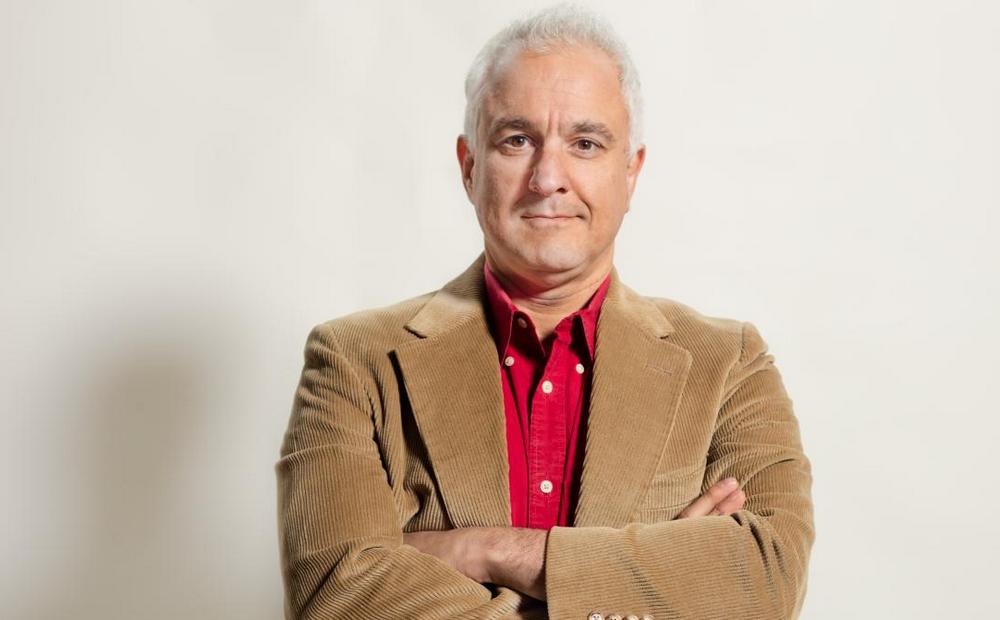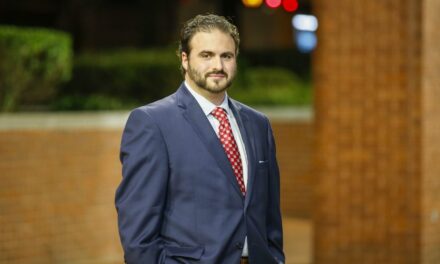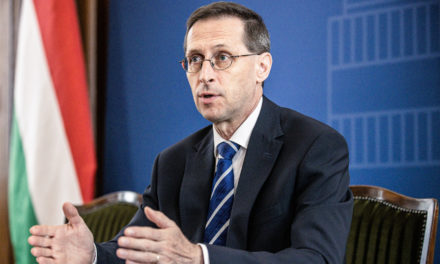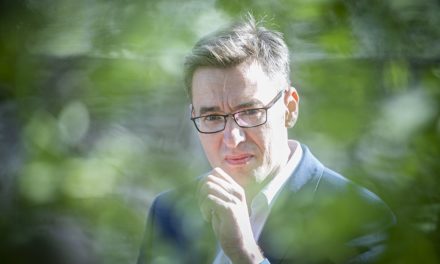The university has become a kind of social justice factory, where both thinking and research have become impossible - among other things, this is the reason Peter Boghossian, a teacher at the American Portland State University, resigned from his professorship. According to Boghossian, a philosopher and pedagogy researcher, the extreme left in America has captured the social sciences. There are more and more areas where the scientific approach is being replaced by ideology, extinguishing debate and mandating acceptance on everything from gender theory to racial issues. Fortunately, Hungary is not here - said the professor in Kossuth radio's Sunday newspaper program.
– What are your main expectations, goals and ambitions at the beginning of your stay in Hungary? He will also be one of the featured speakers at the Mathias Corvinus Collegium (MCC) big conference, which is about education and children.
"First of all, I love being here, it's great." MCC invited me to give lectures in my area of expertise, which is critical thinking and moral reasoning – which is about empowering people to engage in dialogue across political and moral divides. In the United States, unfortunately, one of the things we have lost is not so much the ability to talk to each other, although that is included, but the desire to talk to each other. Plenty of people see an existential threat in those who hold different political views than they do. And what follows from this is that we are less able to solve our problems, and we break up into smaller and smaller groups that do not talk to each other.
– Can your opinion become part of the discussion? He resigned from his university professorship last year. Since then, have you been treated differently in academic and scientific circles?
– This is a very good question, because apparently everyone is aware that something is not working well. But in a university setting it is very difficult to find out who really thinks what, because there is a cultural fear. People are afraid to say what they think, because they can be accused of racism, or called bigoted or prejudiced. So he doesn't really know what the other person is thinking. Since I resigned, I have been invited to a newly established university institute at the University of Austin in Texas. This institute has leading members such as Ayaan Hirsi Ali, Niall Ferguson, Barry Weiss, or Heather Heying, the evolutionary biologist, New York Times bestselling author, and Kaitlin Stock. Today, heretical ideas are attributed to them. Ayaan Hirsi Ali has been through terrible things, writes books about Islam that do not fall into the politically correct category. I don't think there is anything debatable in Kaitlin Stock's books, but they are still widely controversial. He writes about what it means when people born as men but who consider themselves women appear in places reserved for women only. Can these people be allowed into prisons or, for example, can these people compete among women in swimming competitions. This is a big topic in the States these days. The other thing that has happened since my resignation is that after I return home at the end of March, I will hold a kind of "reverse" discussion forum at 20 universities. In other words, I will give a lecture, and then I will also sit in the audience during the question-and-answer session, and I want to give an opportunity to university actors who are victims of the new social egalitarian ideologies - I will visit universities that are nests of the so-called "woke ideology", the critical theory.
- The intellectuals you mentioned, and those who speak about gender issues, are regularly called homophobic, etc., racist, etc. You may have encountered this yourself, and it was part of your withdrawal from university.
"Yes, I bumped into it all the time." A culture has emerged that is based on a kind of cowardice in people. Here in Budapest, it is very interesting to talk to people who recall the words of their grandparents about the communist system - that at that time you could only talk about politics in whispers, and you could only say certain things, freedom of speech did not exist. We see this happening in the United States today. If someone teaches at a university and has a family, I can't tell them to say what they think, since their primary obligation is to their family. Also, the first step in solving a problem is to be honest about it, and right now we're not being honest about our problems. However, it is a minority that accuses us of injustice if we do not agree with them. And what is even more important than this - and this is very important - I was told, for example, when I asked for arguments, that I had committed a "microaggression". So, when I simply want evidence for a claim, that's "microaggression". But that's actually my job, or it should be. I am a philosopher, I ask what supports an institutional political idea. Or, nowadays, it is very common to sign so-called diversity declarations, which shows a commitment to diversity. But here it is not about the diversity of thoughts, but its opposite. So the problem is that people are simply unwilling or unable to stand up for things they believe to be true. In addition, we have created a culture of pretense, people pretend things that are largely impossible to believe.
– You have already mentioned critical thinking and its importance. Well, if I follow the debate around this in the United States, I find the critical marker in one place in the context of university education, namely in critical race theory, but nowhere else.
- Yes, they use the word "critical", but they mean something else, critical awareness, which is about developing the procedures and skills with which racism can be found in practically everything. And this is different from critical thinking, which is a completely different thing, and I will talk about it on the occasions here as well.
"There is another contradiction." In his resignation, he wrote and spoke about illiberalism in American universities. However, those you criticize call themselves liberals.
"Yes, that's an interesting question, and very Orwellian, isn't it?" They pretend to be something, that's one thing, but in reality they are completely different. The last thing that is true about these people is that they would be liberals, it's almost like when my kids were little and we played that today everything means the opposite. So in an inverted world they would be truly liberal. But they are actually autocrats. Let me give you an example: they claim that there is a need to restrict speech because speaking can be very painful for traditionally disenfranchised groups. A more welcoming environment for them can be created by limiting speech. They have a word for this, inclusion, reception.
- Looking at the university environment, is it about freedom of speech, or more narrowly speaking about academic and research freedom?
"That's a great question, it's about both." It is narrowly speaking about the university environment, specifically touching on a few topics there, such as race, gender, sexual orientation and, broadly speaking, diversity. However, it is also present in American culture in a broader sense, with the so-called erasure. It works like you say something, it might have happened 10 years ago, it doesn't matter, they will come after you, they will catch you, you will lose your job as a journalist. So we can find this both inside and outside the university environment. In science, it appears that it cannot publish, it does not advance in its scientific degree. Then everyone who speaks out against the scientific orthodoxy will be punished in one way or another.
Source: hirado.hu
You can listen to the entire conversation HERE
Cover image: Photo: thetimes.co.uk












